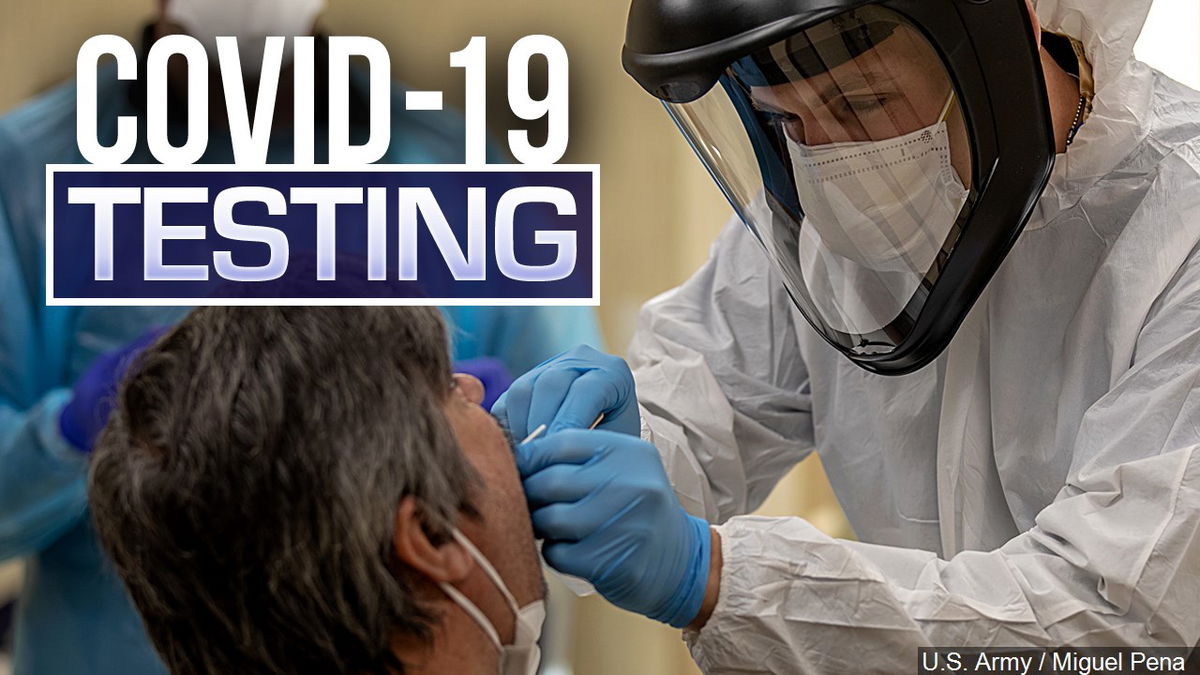Audit: COVID tests costlier under Utah contract with startup

SALT LAKE CITY (AP) - A multimillion-dollar coronavirus-testing contract the state of Utah signed with a startup company ended up costing significantly more per test because fewer people than expected took the tests, according to an audit released Wednesday.
The agreement with Nomi Health, which also has similar contracts in Iowa and Nebraska, was for a flat fee and didn't have a way to scale back if the number of tests was lower than planned, the audit found.
The $7.6 million contract was for up to 3,000 tests per day, which would have made them cost less than other providers, according to the Utah State Auditor.
But instead there were only about 540 tests processed per day at TestUtah sites, so each one ended up costing $235 - significantly higher than the $125-per-test average of other testing companies, according to the review.
The company did charge the state about $1.28 million less than it could have, and the state later signed a lower-cost contract with the company, the audit found.
The state said it was reviewing the audit. Nomi didn't immediately comment on the findings, which were part of a wide-ranging review of state spending in its response to the pandemic. The sometimes-critical audit comes as Republican Lt. Gov. Spencer Cox weathers criticism about the state's response to the crisis while he runs for governor.
The report raised concerns about whether contracts like TestUtah were steered to tech companies that are affiliated with Silicon Slopes, a nonprofit group of tech companies that Cox and Utah Gov. Gary Herbert have "relatively close" relationships with, the audit stated.
The governor's office denied those relationships influenced the award of contracts. Chief of Staff Justin Harding said in a written response that contracting with known companies likely saved the state money, and staffers made "independent judgments" about who would be the best vendor for a given project, the Salt Lake Tribune reported.
Still, the audit also questioned the price the state paid for an app designed to help with contact tracing. The $6.3 million price tag came without much research into whether that was a reasonable cost, the audit found. One prized feature was location tracking - later turned off amid users' privacy concerns.
State officials responded that other aspects of the app have had value, including recommending testing that has resulted in nearly 2,400 positive tests.
The audit also looked at a planned $800,000 purchase of hydroxychloroquine, an anti-malarial drug that was once touted by President Donald Trump as a possible treatment for the virus despite warnings from doctors that more research is needed. The audit found that it remains unclear who authorized the purchase, which was canceled and refunded after it became public.
"We are concerned that this purchase occurred without anyone's explicit authorization," auditors wrote in the report, according to the Deseret News. Still, under the circumstances at the time the cost and desire to obtain the drug were not unreasonable, the audit found.
The governor's office acknowledged that its communication was lacking in that case.




